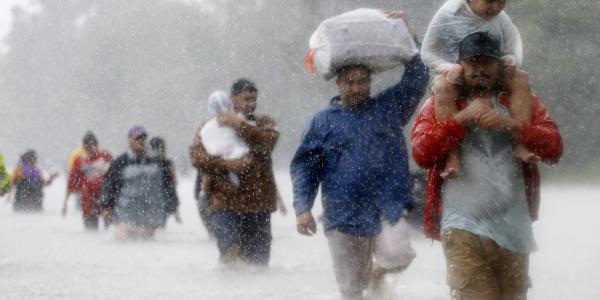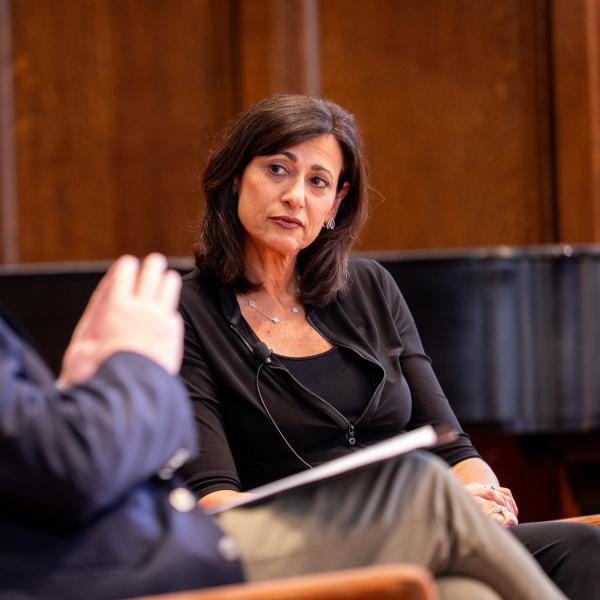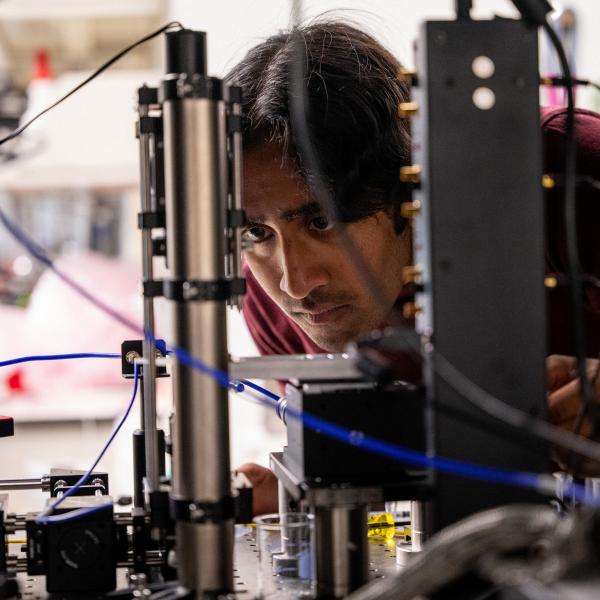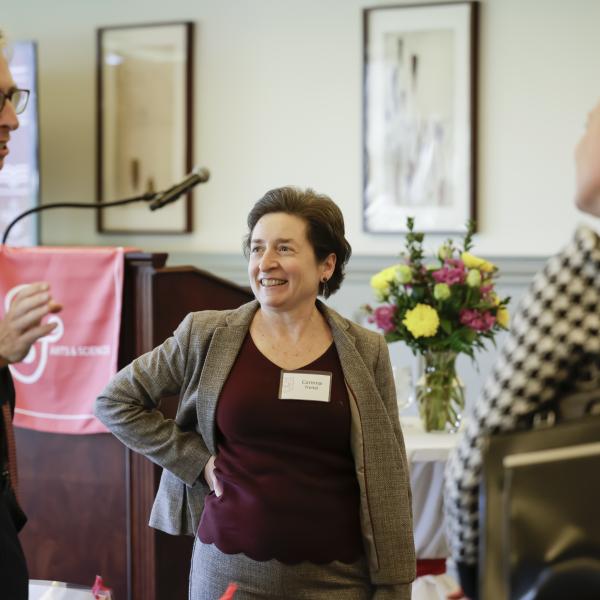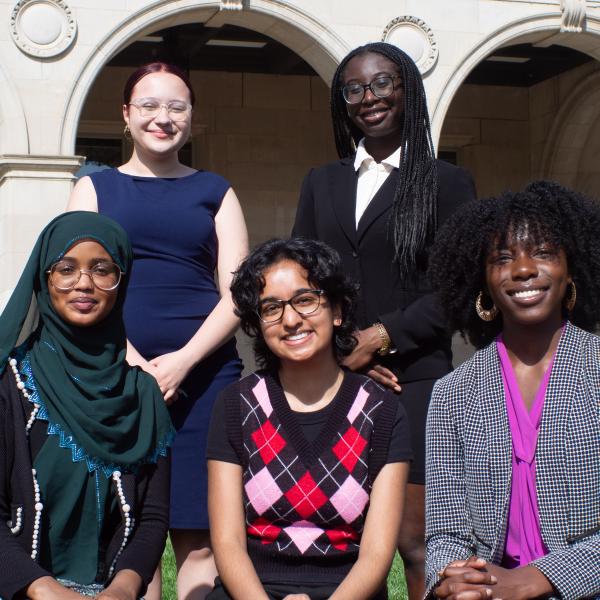On Sept. 28, the second of two “Science Matters” lectures will feature sociologist, journalist, and filmmaker Christian Parenti. Parenti's most recent book, Tropic of Chaos: Climate Change and the New Geography of Violence, investigated how environmental changes have fueled violence and military conflict in Kenya, Afghanistan, and Pakistan. His upcoming lecture is titled “The Climate Crisis, Political Pessimism, and Realistic Solutions.”
Parenti's talk follows a panel discussion held Sept. 18 with NPR’s Ira Flatow and climatologists Gavin Schmidt and Browen Konecky. The panelists discussed the causes of climate change and how conversations around climate change have changed over the last 20 years, and hinted at the effects on humans and our societies. During the panel, Konecky said, “Climate change is not an environmental issue. We talk about it a lot as an environmental thing: We care about polar bears; we care about rainforests. But it’s really a humanitarian issue. It’s an issue that climate change impacts fall disproportionately on the poor.” This is precisely where Parenti will pick up.
T.R. Kidder, the Edward S. and Tedi Macias Professor and chair of anthropology and professor of environmental studies, will introduce Parenti. Kidder says, “Climate change is reasonably seen as one of the greatest global challenges for the 21st century. Changing climates will affect all humans in some fashion, and understanding the processes and consequences of climate change is, to my mind, the starting point for considering how we are going to respond to what will certainly be a different world in years to come.”
“In this regard Christian Parenti’s work is timely and incisive because it explores the consequences of climate change and, especially, the myriad ways small changes in rainfall or temperature affect human well-being by amplifying economic and social practices. As he notes in his influential book, Tropic of Chaos, climate change ‘is not a technical problem, nor even an economic problem; it is fundamentally, a political problem.’”
Kidder says he finds Parenti’s work particularly compelling because it reminds us how complex and consequential climate change is. “Understanding the physical basis of climate change — what makes climates change — is a vastly challenging undertaking, but one that is ultimately knowable because these processes are driven by known, fixed physical laws. Parenti’s work reminds us that the real challenge and complexity of climate change lies not in what makes climates change, but instead in how humans respond to these changes. His work is a vivid reminder that climate change is real and has real effects on people around the world.”
“This event promises to be exciting, captivating, and, I expect, challenging, because we are asked to move past the science and to look at ourselves and others and to understand that our actions have consequences.”
“Science Matters” is funded by the Compton-Ferguson endowment. The Compton-Ferguson endowment is made up to two previously separate gifts. The Arthur Holly Compton Lectures began in 1963 with a gift from James S. McDonnell in honor of Compton, Washington University’s ninth chancellor and one of America’s great scientists. McDonnell was a member of the university’s Board of Trustees and president of McDonnell-Douglas Aircraft Corporation.
The William C. Ferguson Lectures were established in 1961 through a bequest from Ferguson, a friend of Compton, to bring distinguished scientists to the university. Though originally separate series, both the Compton and Ferguson Lectures are now supported by the Ferguson endowment and organized in conjunction with WashU’s Assembly Series.
The committee is overseen by Schaal with the Provost Holden Thorp serving as an ex-officio member and Smith and William Tate, dean of the Graduate School, as standing member. In addition to Wysession, the other members of the speaker selection committee were David Freidel, Petra Levin, Jay Ponder, Renator Feres, Francesc Ferrer, and Rebecca Treiman. The committee also included Barbara Rea of the Assembly Series and was chaired by Ebba Segerberg, director of communications in Arts & Sciences.
Christian Parenti will give his lecture, “The Climate Crisis, Political Pessimism, and Realistic Solutions,” on Sept. 28 at 6:00pm in the Clark-Fox Forum in Hillman Hall.
